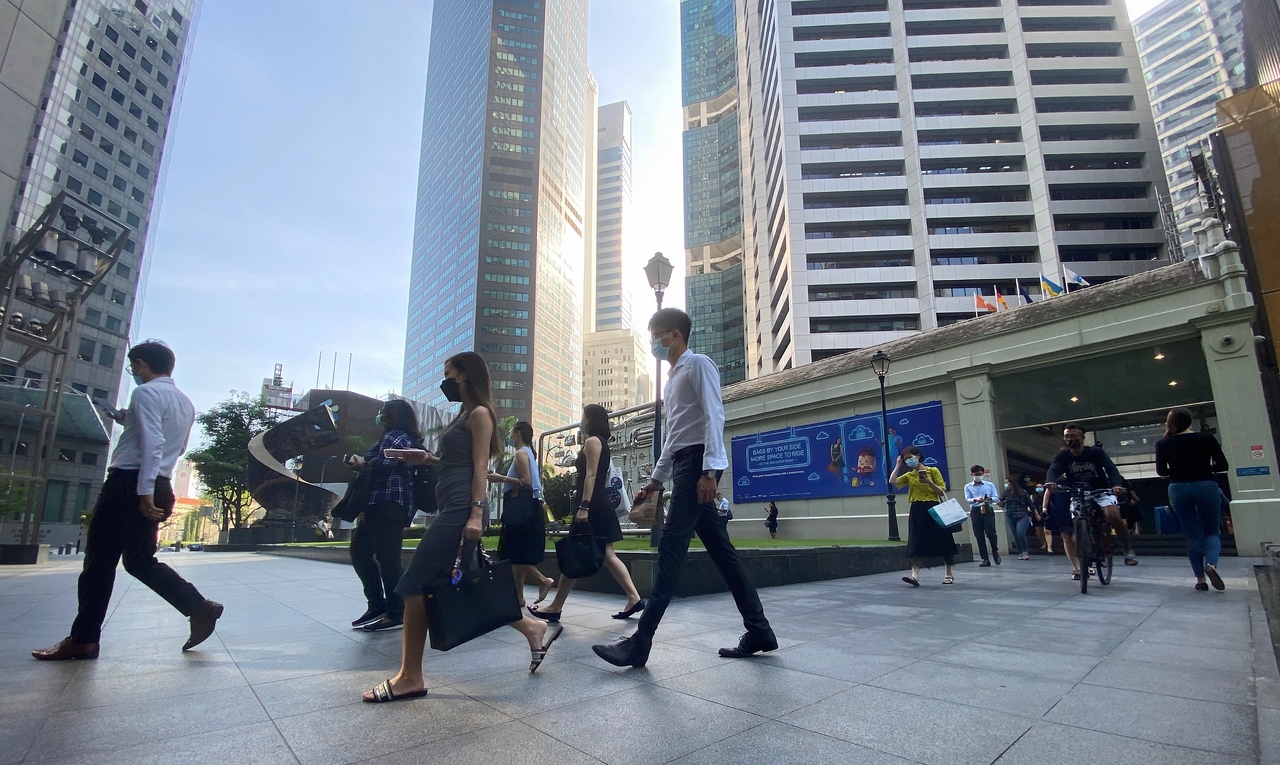Report on minimum income standards not an accurate reflection of basic needs: Finance Ministry
Sign up now: Get ST's newsletters delivered to your inbox

The amount of government subsidies and financial support reflected in the report are what the median earner - not low-income families - receives.
PHOTO: ST FILE
SINGAPORE - The Ministry of Finance (MOF) has flagged issues with a report by several academics on minimum income standards for households, saying those reading it should bear in mind the limitations of the approach researchers used.
"The conclusions may not be an accurate reflection of basic needs largely due to assumptions used," the ministry said in a statement on Friday (Oct 8).
It pointed out that the methodology used to arrive at the Minimum Income Standard (MIS) is highly dependent on group dynamics and the profile of the participants.
"With most participants having post-secondary education and 15 per cent living in private properties, the findings expressed may not be reflective of the circumstances of the lower-income families," MOF added.
The study on household budgets, by a group of researchers from the National University of Singapore's Lee Kuan Yew School of Public Policy (LKYSPP) and Nanyang Technological University (NTU), found that a family of four, with parents, a pre-teen and a teenager, needs at least $6,426 a month to afford a basic standard of living.
But a substantial and concerning proportion of working households in Singapore - about 30 per cent - do not earn enough to meet these needs, it noted.
These findings were released in the report Minimum Income Standards for Households in Singapore (2021), which was also extended to the Government.
In its statement, the ministry made three observations on how this might have affected the study's findings.
First, it said researchers included discretionary expenditure items such as private enrichment classes, jewellery, perfumes, and overseas holidays in the estimates.
It said the study did not take into account alternatives to these items, such as government-run student care centres and the various self-help groups, which provide enrichment classes at low cost.
Second, researchers considered mortgage payments for flats an expenditure item.
However, they downplayed the point that the non-interest parts of mortgage payments can be seen as savings that help households build housing equity, MOF said.
The third point MOF raised was that while the report concluded that the MIS budget required is around $1,600 per month per person for both single and two-parent households, the $1,600 figure is closer to what an average household spends, based on the Household Expenditure Survey 2017/18.
"This means that it is in excess of basic needs for an average household," said MOF.
The ministry also said that there are errors in certain assumptions made in the report, which under-state the amount of government subsidies and financial support received by low-income families.
The amounts reflected in the report are what the median earner - not low-income families - receives, MOF added.
The ministry cited, as an example, how a low-income household can receive up to $80,000 under the Enhanced Housing Grant for a new flat, more than the $15,000 received by a household with two median-income earners.
At the same time, MOF acknowledged that the report offers an additional data point on the expectations and aspirations of Singaporeans, which will continue to evolve over time.
"The Government is sensitive to these shifts and regularly reviews our scope and coverage of assistance to ensure it is relevant and adequate," it added.
It went on to detail some of the policies it has put in place to beef up spending on social programmes, adding that over the last 10 years it has doubled social spending from $17 billion in the 2010 financial year to $31 billion in the 2019 financial year.
MOF added that the Government recently announced moves to uplift low-wage workers at this year's National Day Rally.
It also said that over the last few years the Government has improved pre-school subsidies, Ministry of Education financial assistance schemes for school children and bursaries for students at institutes of higher education.
It added that the government has also enhanced healthcare subsidies such as Community Health Assist Scheme coverage for citizens with chronic conditions, rolled out special healthcare subsidies for Pioneer Generation and Merdeka Generation seniors, and introduced schemes such as MediShield Life and CareShield Life.
"The Government will continue supporting those in need through a combination of building their capacity for self-resilience, strengthening their family support, and partnering with the community for further support," said the ministry.


